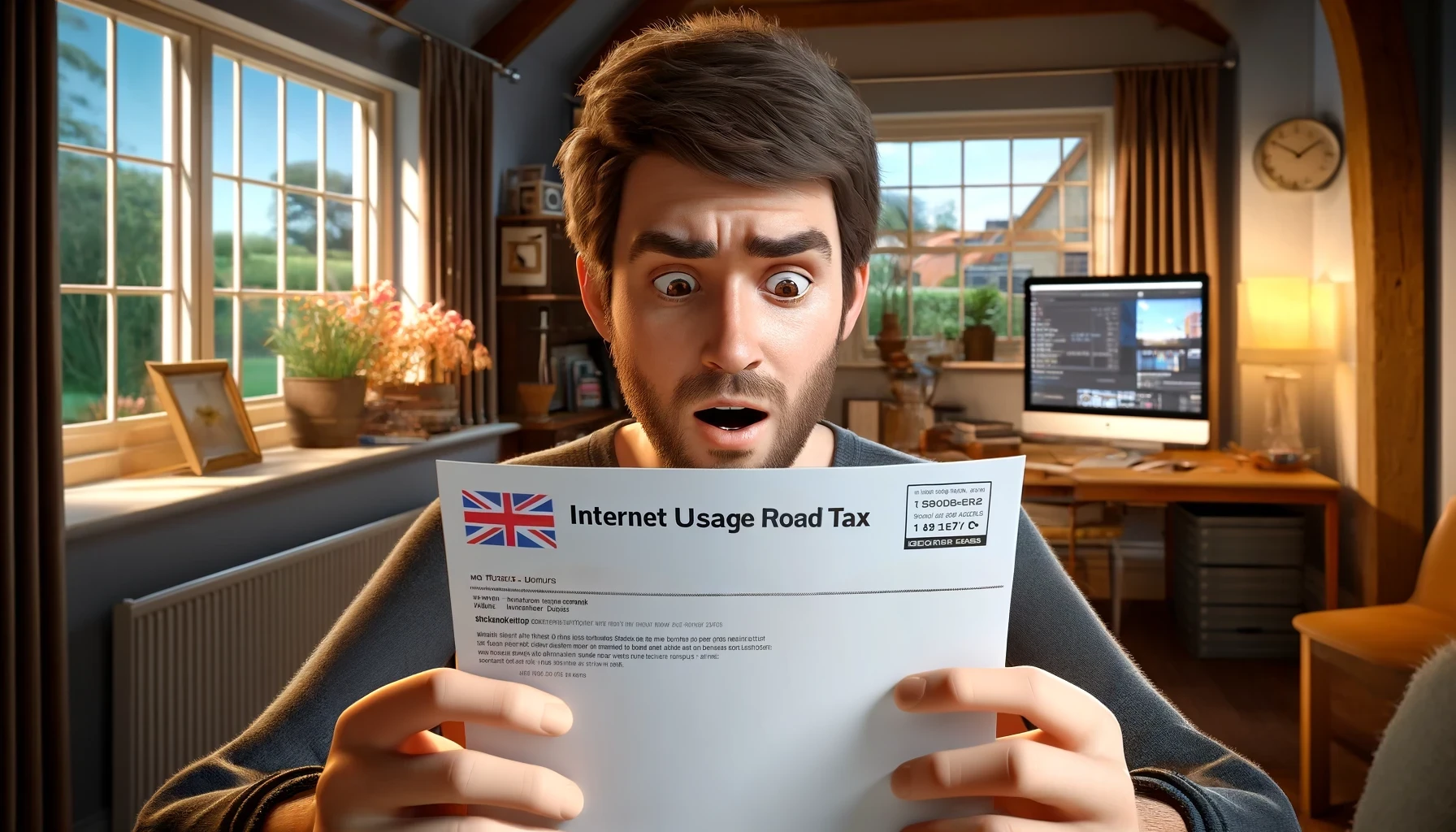In a scheme that would make even Orwell blush, British telecommuters could soon face a bizarre new tax: paying for road usage based on their internet data consumption. The government argues that since remote workers contribute less wear and tear on the roads, they must pay their “fair share” in other ways. Welcome to the world of taxation through surveillance.
Here’s how this digital highway robbery would work: internet service providers would be mandated to track and share users’ data usage with tax authorities. Complex algorithms would then estimate the amount of driving “avoided” by working from home, translating into a hefty new addition to your monthly internet bill.
“It’s simple fairness,” reasons Reginald Revenue, Chancellor of the Exchequer (and apparent enemy of privacy). “Those who clog up the roads during the commute must pay their dues. If you’re lucky enough to work in your pajamas, you should contribute to the upkeep of the infrastructure you’re not using.”
Naturally, the proposal has been met with widespread outrage and a healthy dose of British sarcasm. “So, if I stream endless cat videos, do I get a road tax discount?” quips disgruntled telecommuter, Penelope Pajamas. “This is government overreach at its finest. Next, they’ll tax us based on our late-night online shopping habits.”
Privacy advocates are apoplectic. “Our internet usage is none of the government’s business,” declares Oliver Offgrid, a digital rights activist. “This sets a dangerous precedent. Once they link your web browsing to your tax bill, where does it stop? A congestion charge for too many Zoom calls?”
Economists warn of unintended consequences. “This tax actively disincentivizes remote work, which benefits employers, reduces traffic congestion, and has environmental advantages,” points out Dr. Fiona Figures. “It’s shortsighted and counterproductive.”
Of course, the government insists sinister motives aren’t at play. They claim it’s all about maintaining vital infrastructure and ensuring everyone pays their share. Yet, the scheme reeks of desperation from a treasury scrambling to replace revenue lost due to shifting work patterns.
Whether this Orwellian tax becomes a reality or dies a well-deserved death in a storm of public backlash remains to be seen. But one thing’s certain: the concept of taxing citizens based on their internet habits is a chilling glimpse into a potential dystopian future where every keystroke becomes a potential financial liability.

